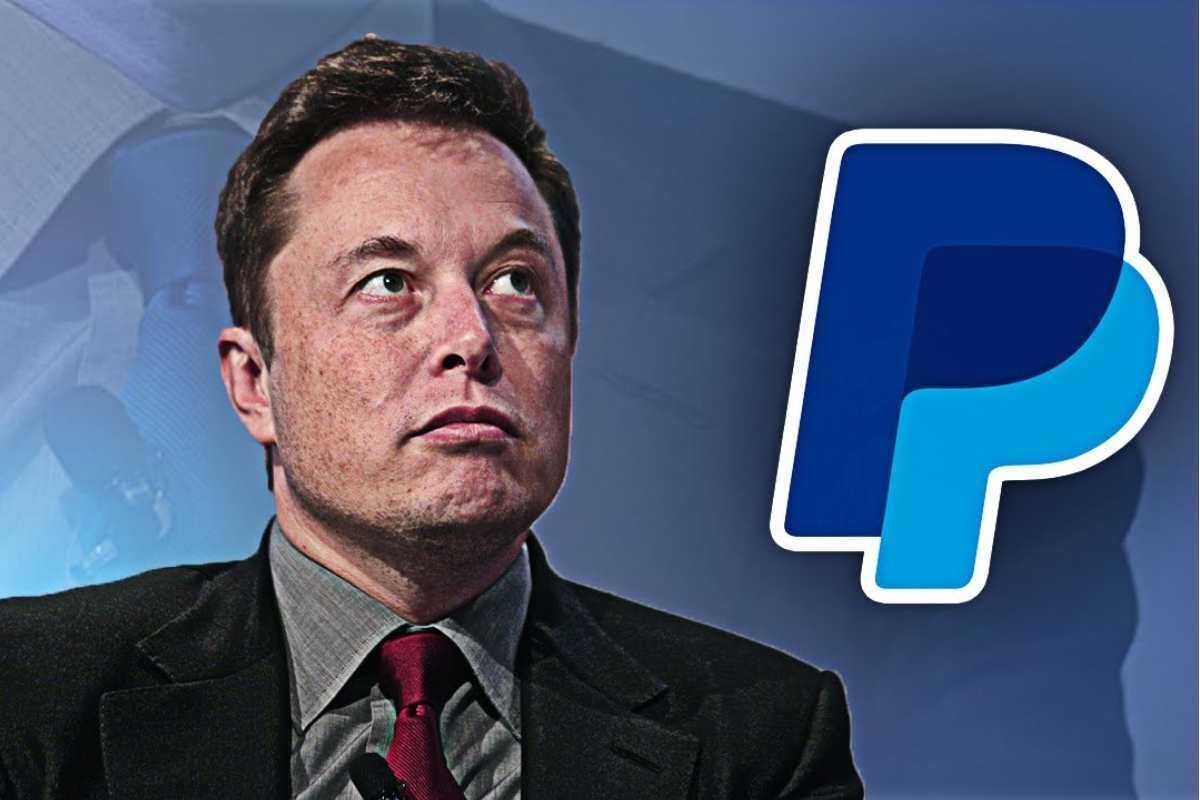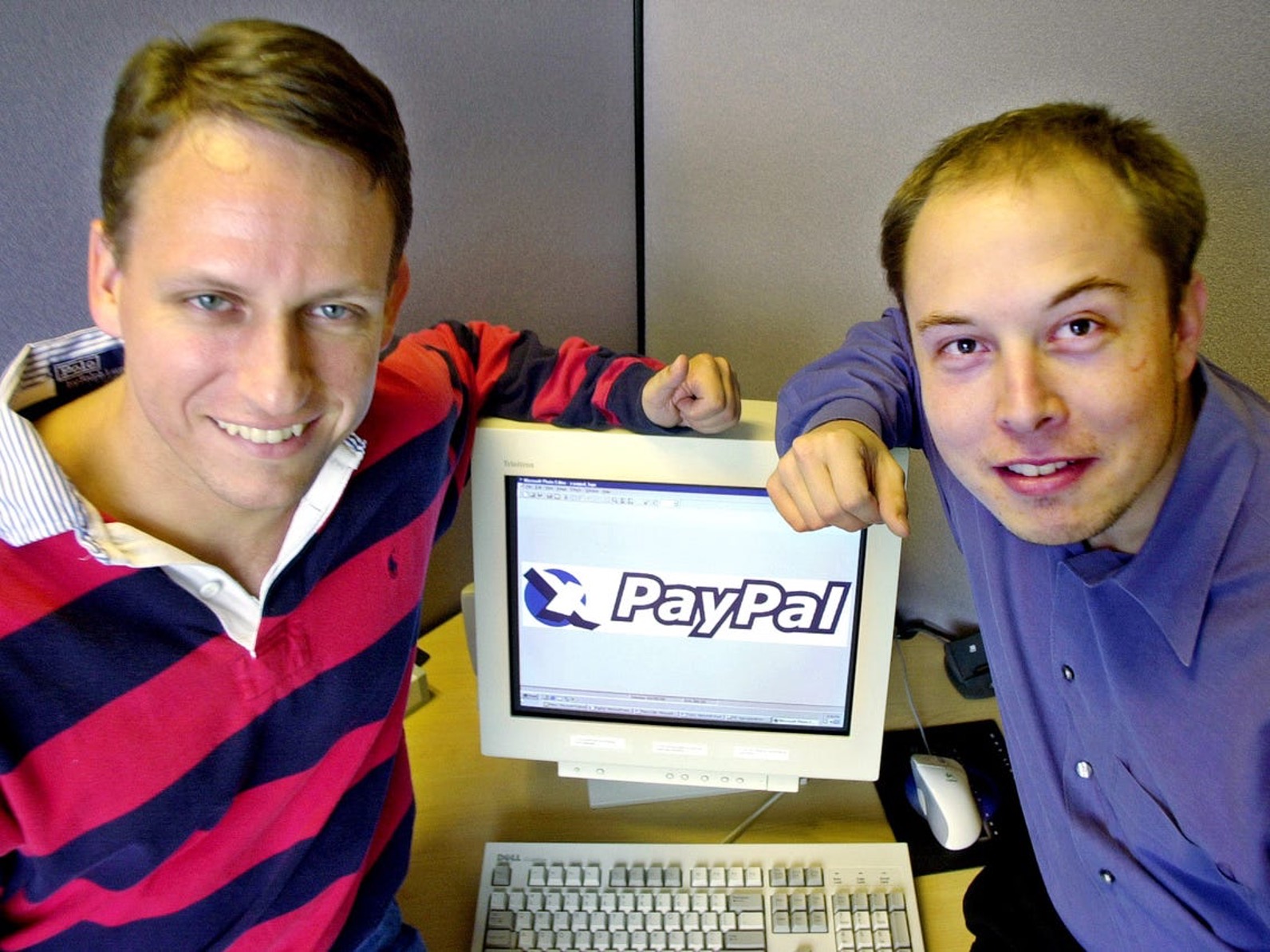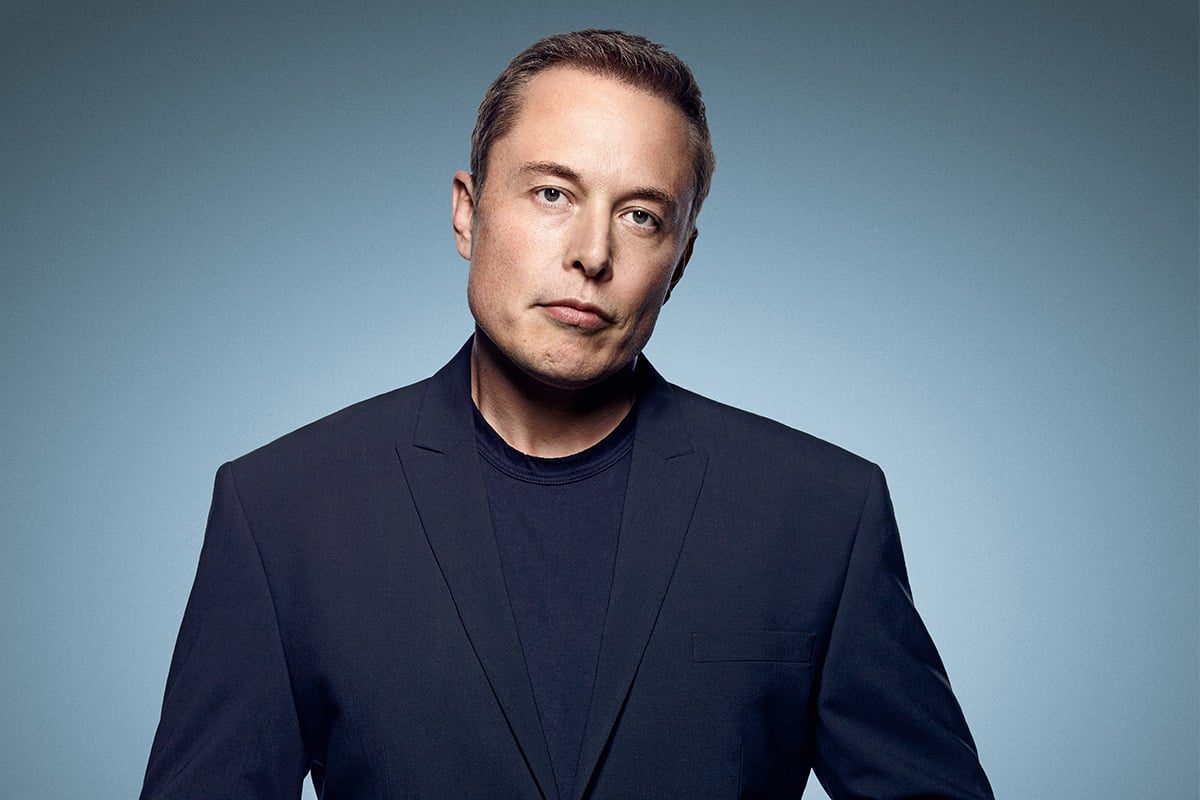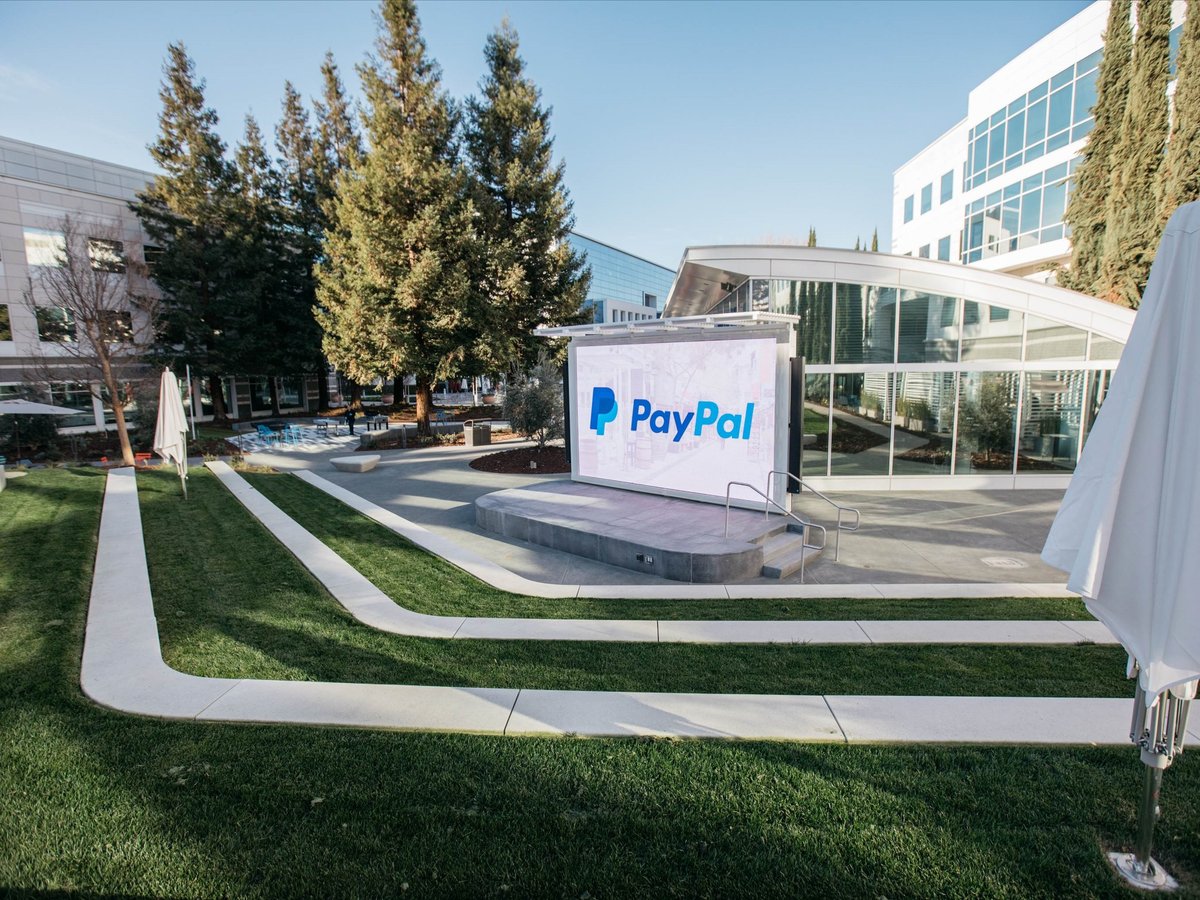Introduction
Elon Musk, the visionary entrepreneur known for his groundbreaking ventures such as Tesla, SpaceX, and Neuralink, is a name that resonates with innovation and success. However, before these ventures brought him global recognition, Musk had already made a significant impact in the world of technology as one of the co-founders of PayPal. PayPal, the online payment system that has revolutionized e-commerce, was Musk’s first major entrepreneurial accomplishment.
In this article, we will delve into the journey of Elon Musk and his involvement with PayPal. We will explore the founding of PayPal, Musk’s role in its creation, the growth and success of the company, eBay’s acquisition of PayPal, and Musk’s subsequent departure. By examining these key milestones, we can gain a deeper understanding of the incredible journey that led Musk to become one of the world’s most influential and successful entrepreneurs.
Founded in 1998, PayPal emerged during a time when online transactions were still in their infancy. The internet was rapidly becoming a global marketplace, but there were significant challenges in securely transferring money online. This presented a unique opportunity for innovative individuals to address this growing need.
Musk, along with co-founders Peter Thiel, Max Levchin, Ken Howery, and Luke Nosek, recognized the potential in creating a digital payment platform that would make online transactions secure, convenient, and accessible to a wide range of users. This realization led to the birth of PayPal, originally named Confinity, which aimed to provide a seamless digital payment solution.
With Musk’s vision and leadership, PayPal quickly gained momentum, attracting investors and users alike. Musk believed in the power of a simple and user-friendly interface, which allowed individuals and businesses to easily send and receive payments online. This approach differentiated PayPal from its competitors and contributed to its rapid growth.
Within a few years, PayPal had become the go-to payment system for online auctions, including the immensely popular eBay marketplace. The integration of PayPal as a payment option on eBay played a pivotal role in the success of both platforms, as users found the convenience of securely purchasing items with just a few clicks irresistible.
As PayPal continued to expand its reach and user base, it caught the attention of e-commerce giant eBay. In 2002, eBay acquired PayPal in a deal worth $1.5 billion, solidifying the position of the online payment system as a leading player in the industry. This acquisition not only validated Musk’s vision and entrepreneurial talent but also proved to be a turning point in his career.
Despite the success of PayPal and its integration with eBay, Musk decided to move on to pursue other ventures. His departure from PayPal marked the beginning of a new chapter in his entrepreneurial journey, where he would go on to achieve even greater feats with companies like Tesla and SpaceX.
The Founding of PayPal
The story of PayPal begins in the late 1990s, a time when the internet was making its mark on the world and transforming various industries. Elon Musk, along with a group of brilliant minds including Peter Thiel, Max Levchin, Ken Howery, and Luke Nosek, recognized the need for a secure and convenient online payment system.
In 1998, Musk and his co-founders launched a company named Confinity, which aimed to develop software for handheld devices. However, their focus soon shifted to online payments as they realized the immense potential in this burgeoning market.
Confinity merged with another company called X.com, founded by Elon Musk, which aimed to create an online banking platform. However, it became evident that the future of banking lay in the digital realm, and the company pivoted its focus solely to online payments. Recognizing the need for a simple and user-friendly system, the founders rebranded their venture as PayPal in 2001.
PayPal quickly gained traction, as it provided an easy way for individuals and businesses to transfer money online. Its key selling point was the simplicity and speed of its service, making it an ideal solution for online auctions and e-commerce transactions. This led to partnerships with major e-commerce platforms, fueling the company’s growth.
Musk’s role in PayPal’s founding cannot be understated. His vision and determination were instrumental in shaping the company’s strategy and direction. He understood the need for a secure and accessible online payment system, and he pursued that vision relentlessly.
The founding of PayPal marked a turning point in the world of online payments. It disrupted traditional banking models and paved the way for the rise of digital transactions. The success of PayPal not only laid the foundation for Elon Musk’s future ventures but also transformed the way people conduct financial transactions online.
In the next section, we will explore Elon Musk’s involvement in PayPal and how his leadership contributed to the growth and success of the company.
Elon Musk’s Involvement in PayPal
Elon Musk played a crucial role in the success of PayPal from its early days. As one of the co-founders and the driving force behind the company, Musk brought his entrepreneurial vision and strategic thinking to the table.
While Musk was not the original founder of PayPal, his involvement began when his online banking startup, X.com, merged with Confinity, the company that would later become PayPal. Musk’s expertise in finance and technology made him a valuable addition to the team.
Musk’s leadership skills and his ability to envision the potential of the online payments industry were evident from the start. He was instrumental in shaping PayPal’s strategy and direction, driving the company towards becoming a household name in the online payment space.
One of Musk’s key contributions was in designing a user-friendly interface for PayPal’s platform. He understood the importance of simplicity and convenience, ensuring that anyone, regardless of their technical expertise, could easily navigate and use the service. This focus on usability set PayPal apart from its competitors and attracted a wider audience.
Musk also recognized the power of partnerships to accelerate PayPal’s growth. He forged crucial relationships with major e-commerce platforms, particularly eBay, which allowed PayPal to become the preferred payment method for millions of online shoppers. This integration with eBay proved to be a game-changer and propelled PayPal to even greater success.
Furthermore, Musk exhibited his forward-thinking mindset by pushing for expansion into international markets. He saw the potential for PayPal to become a global payment solution, and under his guidance, the company expanded its reach into numerous countries, solidifying its position as a leader in the global payments industry.
Musk’s relentless pursuit of innovation and improvement was also evident in his efforts to enhance PayPal’s security systems. He implemented measures to safeguard user data and combat fraudulent activities, establishing PayPal as a trusted and secure platform for online transactions.
While Musk’s role in PayPal diminished over time as he shifted his focus to other endeavors, his impact on the company’s success cannot be overstated. His entrepreneurial spirit, strategic thinking, and emphasis on user experience laid the foundation for PayPal’s growth and cemented its position as a revolutionary force in the world of online payments.
In the following section, we will delve into the incredible growth and success that PayPal achieved under Musk’s leadership.
PayPal’s Growth and Success
Under the leadership of Elon Musk and his team, PayPal experienced remarkable growth and achieved unprecedented success in the online payment industry. The combination of a user-friendly platform, strategic partnerships, and a focus on innovation propelled the company to new heights.
From its early days, PayPal quickly gained popularity as a digital payment solution that catered to the needs of both individuals and businesses. Its seamless user interface and reliable security features made it the preferred choice for online transactions.
One of the key factors that contributed to PayPal’s success was its integration with eBay. As the leading online marketplace, eBay provided PayPal with a massive user base and a platform for rapid expansion. The partnership allowed PayPal to become the default payment method for eBay auctions, making it the go-to option for millions of buyers and sellers.
The integration with eBay not only boosted PayPal’s user numbers but also instilled trust in the platform. PayPal transactions on eBay were protected by buyer and seller protection policies, giving users peace of mind when making online purchases. This trust played a significant role in PayPal’s growth, as users began to embrace the convenience and security it offered.
As PayPal’s user base continued to grow exponentially, it expanded its services beyond eBay, allowing users to make payments on various e-commerce platforms and websites. This diversification helped solidify PayPal’s position as a dominant player in the online payment industry.
Moreover, PayPal’s international expansion proved vital in driving its growth. Musk’s vision to make PayPal a global payment solution led to the company entering new markets and partnering with local financial institutions to ensure seamless cross-border transactions. This expansion opened up vast opportunities for PayPal, enabling it to serve customers around the world.
Another crucial aspect of PayPal’s success was its commitment to constant innovation. The company continually improved its platform, introducing new features and services that enhanced the user experience. From mobile payment solutions to peer-to-peer transfers, PayPal stayed ahead of the curve and adapted to the evolving needs of its users.
The success of PayPal did not go unnoticed, and in 2002, it caught the attention of e-commerce giant eBay. eBay recognized the immense value that PayPal brought to its platform, leading to the acquisition of PayPal in a deal worth $1.5 billion. This acquisition not only validated PayPal’s position as an industry leader but also marked a significant milestone in Elon Musk’s entrepreneurial journey.
In the next section, we will explore Elon Musk’s departure from PayPal and the subsequent ventures that would make him a household name.
eBay’s Acquisition of PayPal
The acquisition of PayPal by eBay in 2002 was a game-changing moment for both companies and the online payments industry as a whole. eBay, the leading online marketplace, recognized the immense value that PayPal brought to its platform and decided to acquire the company in a landmark deal worth $1.5 billion.
The acquisition was a strategic move by eBay to strengthen its position in the fast-growing e-commerce market. PayPal’s seamless payment system and widespread popularity among eBay users made it an attractive addition to the eBay ecosystem.
By integrating PayPal as the preferred payment method for eBay transactions, both companies experienced a mutually beneficial relationship. PayPal’s integration provided eBay buyers and sellers with a secure and convenient payment solution, while eBay’s massive user base served as a catalyst for PayPal’s rapid expansion.
The acquisition proved to be a resounding success. eBay users embraced the integration of PayPal, resulting in a significant increase in transactions and overall sales on the platform. PayPal’s reputation for reliable and secure online payments instilled confidence in eBay users, driving customer satisfaction and loyalty.
Furthermore, the acquisition propelled PayPal’s growth beyond eBay. With eBay’s backing, PayPal expanded its services to other e-commerce websites and established itself as a trusted online payment solution for merchants and consumers worldwide.
Under eBay’s ownership, PayPal continued to innovate and introduce new features to enhance the user experience. It introduced buyer and seller protection policies, as well as fraud detection and prevention measures, further solidifying its reputation as a safe and trusted platform.
The eBay acquisition also provided PayPal with valuable resources and support to fuel its international expansion. PayPal entered new markets and established partnerships with local financial institutions, enabling seamless cross-border transactions and making it the payment method of choice for customers around the world.
While the acquisition brought undeniable benefits for both companies, it also marked a turning point for Elon Musk’s journey with PayPal. After the eBay acquisition, Musk stepped down as PayPal’s CEO, allowing him to explore other entrepreneurial opportunities and pursue his ambitious visions beyond the online payment industry.
Overall, eBay’s acquisition of PayPal was a transformative moment for both companies, solidifying their positions as leaders in e-commerce and online payments. The integration of PayPal on the eBay platform amplified its growth and success, setting the stage for Elon Musk’s subsequent ventures that would shape the future of technology and innovation.
Elon Musk’s Departure from PayPal
Elon Musk’s departure from PayPal marked a significant milestone in his entrepreneurial journey and paved the way for his future groundbreaking ventures. After eBay acquired PayPal in 2002, Musk decided to explore new opportunities outside the realm of online payments.
Although no longer at the helm of PayPal, Musk’s departure from the company did not signify an end to his entrepreneurial pursuits. Instead, it marked the beginning of a new chapter in his career, where he would go on to make unparalleled contributions to industries such as electric vehicles, space exploration, and renewable energy.
Musk’s exit from PayPal allowed him to focus on his ambitious vision for the future. In 2004, he co-founded Tesla Motors (now Tesla, Inc.), a company dedicated to developing electric vehicles and accelerating the world’s transition to sustainable transportation. With Tesla, Musk aimed to challenge the dominance of fossil fuel-powered vehicles and revolutionize the automotive industry.
Furthermore, Musk founded SpaceX (Space Exploration Technologies Corp.) in 2002, with the goal of making space exploration more accessible and affordable. Through SpaceX’s innovative rocket technology and ambitious missions, Musk has set his sights on colonizing Mars and revolutionizing space travel.
Musk’s departure from PayPal was not a sign of failure or dissatisfaction. On the contrary, it showcased his relentless pursuit of new frontiers, his unwavering determination to bring about technological advancements, and his audacious vision for the future.
While PayPal was undoubtedly a stepping stone in Musk’s entrepreneurial journey, his departure allowed him to fully commit himself to realizing his ambitions in the realms of sustainable energy, transportation, and space exploration. His contributions to these industries have had a profound impact, reshaping the way we view electric vehicles, renewable energy, and the possibilities of space travel.
Musk’s departure from PayPal also serves as a testament to his ability to spot opportunities, take calculated risks, and envision a future that others may find unconventional or unattainable. His departure from PayPal laid the groundwork for his subsequent ventures, where he would become a household name and an inspiration for aspiring entrepreneurs worldwide.
In the next section, we will reflect on the remarkable journey of Elon Musk and the lasting impact he has made on technology, innovation, and the world at large.
Conclusion
The story of Elon Musk’s involvement with PayPal is a testament to his entrepreneurial prowess and vision for the future. As one of the co-founders of PayPal, Musk played a pivotal role in shaping the company into a global leader in online payments.
The founding of PayPal marked a turning point in the world of online transactions. Musk, along with his talented team, recognized the need for a secure and convenient payment system, and their vision propelled PayPal to success.
Under Musk’s leadership, PayPal experienced tremendous growth and achieved remarkable milestones. The integration with eBay, the expansion into international markets, and the relentless pursuit of innovation were key factors that contributed to PayPal’s success.
The eBay acquisition of PayPal further solidified its position as a dominant player in the online payments industry. This pivotal moment allowed PayPal to thrive, providing a secure and user-friendly platform for millions of users worldwide.
However, Musk’s departure from PayPal marked the beginning of a new chapter in his entrepreneurial journey. It provided him with the freedom to pursue other groundbreaking ventures, such as Tesla and SpaceX, where he has made lasting contributions to the fields of sustainable transportation and space exploration.
Elon Musk’s departure from PayPal was not an ending, but a springboard to even greater achievements. It showcased his relentless pursuit of new frontiers, his audacious vision for the future, and his determination to push the boundaries of what is possible.
Today, Elon Musk continues to inspire and revolutionize industries with his ambitious projects. His impact goes far beyond PayPal, leaving an indelible mark on technology, innovation, and the world at large.
As we look back at the extraordinary journey of Elon Musk and his involvement with PayPal, we see a remarkable example of how one person’s vision and determination can transform industries, reshape the way we live, and inspire future generations of entrepreneurs to dream big and create a better world.

























